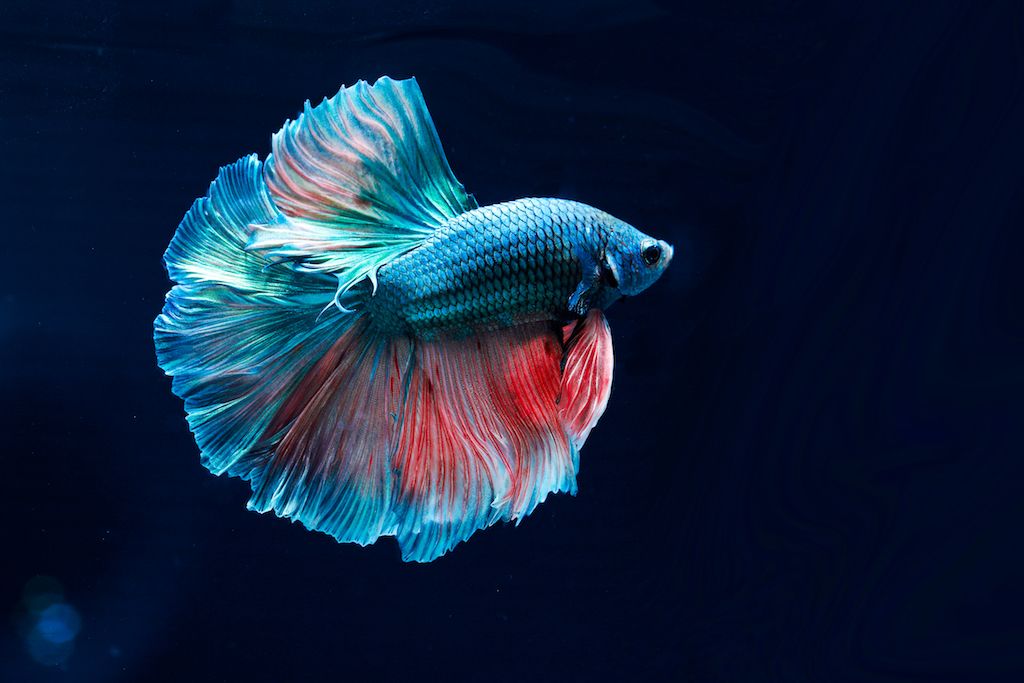Table of Contents
Siamese Fighting Fish, also known as Betta fish, are renowned for their vibrant colors and striking fins. However, beyond their appearance, they possess unique and fascinating personalities. Understanding the personality of Siamese Fighting Fish is crucial for providing them with the proper care and environment. This guide explores the top seven key traits that define these captivating fish.

Top Traits of Siamese Fighting Fish
1. Aggressiveness
Siamese Fighting Fish are known for their aggressive nature, especially males. They are highly territorial and will often fight with other males if housed together. It’s essential to keep them in separate tanks or use dividers to prevent conflicts. For more on managing their aggression, visit Betta Care Fish Guide.
2. Intelligence
Betta fish are surprisingly intelligent and can recognize their owners. They can be trained to perform simple tricks, such as following your finger or swimming through hoops. Providing mental stimulation through interaction and enrichment activities is beneficial for their well-being. For training tips, see PetMD Betta Training.
3. Curiosity
Siamese Fighting Fish are naturally curious creatures. They enjoy exploring their environment and investigating new objects. Providing a variety of decorations, plants, and hiding spots in their tank can keep them engaged and satisfied. For more on enriching their habitat, visit The Spruce Pets Betta Tank Setup.
4. Display Behavior
Betta fish often display their fins and colors to communicate and assert dominance. This flaring behavior is a natural part of their personality. While occasional flaring is normal, excessive flaring can indicate stress or aggression. For more on interpreting Betta displays, see Fishkeeping World Betta Flaring.
5. Individuality
Each Siamese Fighting Fish has its unique personality. Some may be more active and playful, while others can be shy or more reserved. Observing your Betta’s behavior and preferences helps in tailoring their care and environment to suit their needs. For insights on Betta individuality, visit Betta Fish Org Personalities.
6. Sensitivity
Bettas are sensitive to changes in their environment, including water quality and temperature. Sudden changes can stress them out and affect their health. Maintaining stable water conditions and a consistent feeding schedule is crucial for their well-being. For tips on maintaining water quality, see The Spruce Pets Betta Water Care.
7. Loneliness and Interaction
While Betta fish are often kept alone due to their aggressive nature, they still require interaction and stimulation. Regular interaction with their owner and providing a stimulating environment can prevent boredom and loneliness. For more on interacting with your Betta, see Betta Care Fish Guide Interaction.
Conclusion on Understanding the Personality of Siamese Fighting Fish
Understanding the personality of Siamese Fighting Fish involves recognizing their aggressive nature, intelligence, curiosity, and need for a stimulating environment. By appreciating these key traits and providing appropriate care, you can ensure your Betta fish thrives and enjoys a healthy, enriched life. For more tips on Betta care, check out our Pet Care Guide.
FAQs on Understanding the Personality of Siamese Fighting Fish
Can Siamese Fighting Fish recognize their owners?
Yes, Siamese Fighting Fish can recognize their owners and may even follow their finger or respond to their presence.
How can I reduce my Betta fish’s aggression?
To reduce aggression, keep male Betta fish in separate tanks or use tank dividers. Provide plenty of hiding spots and avoid placing mirrors or other reflective surfaces in the tank.
What type of tank setup is best for a Betta fish?
A tank setup with plenty of decorations, plants, and hiding spots is ideal. Ensure the tank is at least 5 gallons and maintains stable water conditions.
How often should I interact with my Betta fish?
Regular interaction is beneficial for Betta fish. Engage with them daily through feeding, training, and providing new objects or changes in their environment.
What are common signs of stress in Betta fish?
Common signs of stress include excessive flaring, hiding, loss of color, and reduced appetite. Monitoring your Betta’s behavior and maintaining stable conditions can help prevent stress.
Can Betta fish learn tricks?
Yes, Betta fish are intelligent and can learn simple tricks such as following your finger or swimming through hoops with patience and consistent training.











